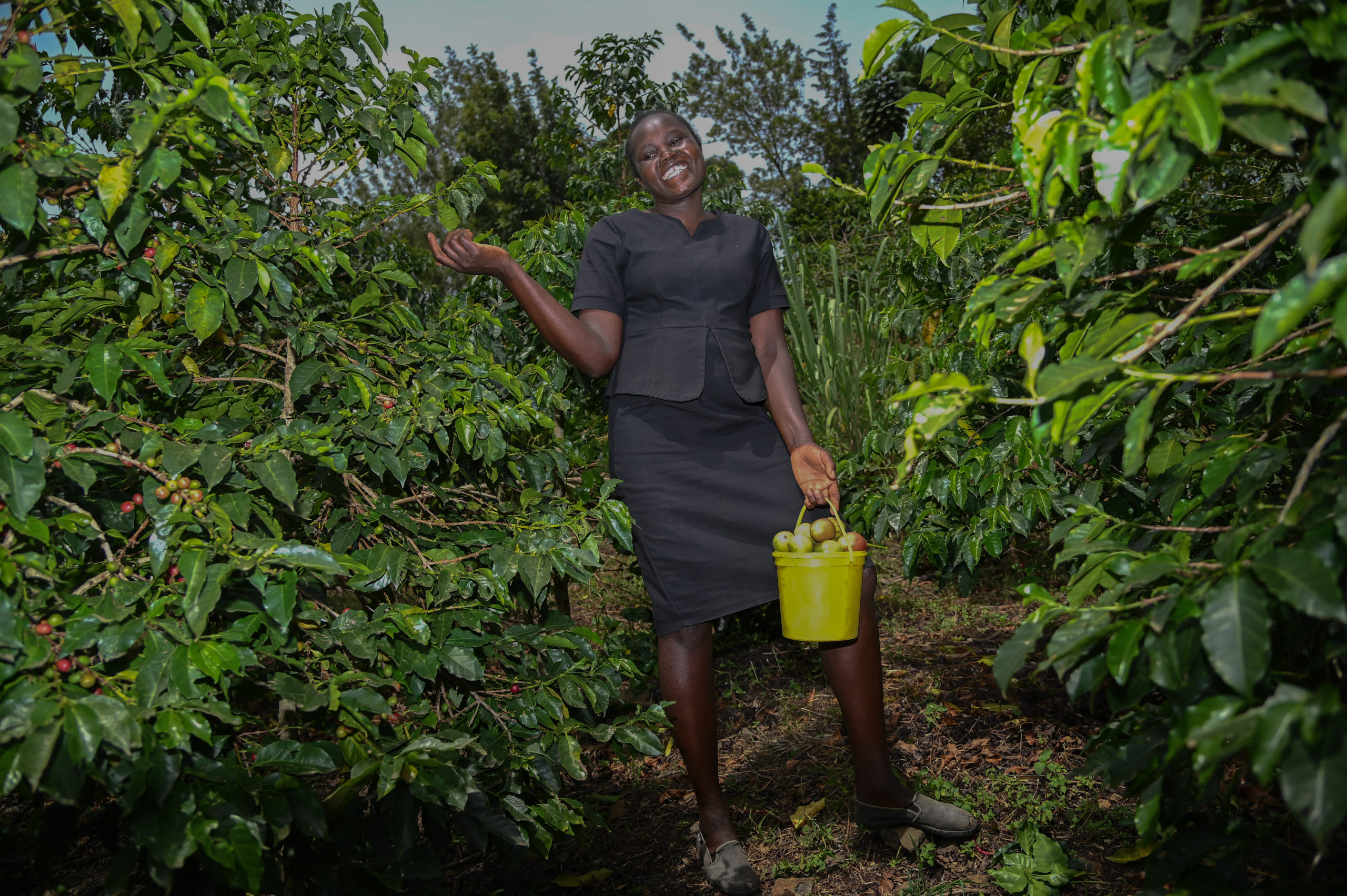At Solidaridad in Kenya, in partnership with African Coffee Roasters, we have been working for the last few years with farmers to create a new supply of organic coffee through the TRACE Kenya programme. Rather than telling you what the farmers have been doing, we decided it would be better to let them speak for themselves. Over the next few months we will be highlighting some of the great people we get to work to build a sustainable coffee value chain in video interviews. Today we want to introduce Alice.
Meet Alice
“My name is Alice Cheptaa, I am an organic coffee farmer based in Kericho, Kenya. I received training from the DMDP-funded Traceable Organic Coffee from Kenya project has equipped me with skills and knowledge on organic farming. The training and support TRACE Kenya offered has enabled me to transition to organic farming. I now make my own organic fertilizer using readily available materials. In addition to applying organic fertilizer, I implement various good agronomic practices including weed control, canopy management, pest and disease control and coffee nutrition. Since I transitioned to organic farming, my coffee trees are much healthier, productivity has improved and more importantly, my income has increased. Importantly, I have acquired the knowledge and skills I need to make my coffee business thrive!”
TRACE Kenya
Globally, consumers and retailers are becoming increasingly aware of the need for responsible production and consumption. There is a market push to reduce the impact of harmful pesticides and other farm inputs on the environment, promote biodiversity and ensure natural resource management. The TRACE Kenya project will contribute to economic growth and promote environmental and social standards of 15,000 smallholder coffee farmers (30% women and 10% youth) in Kericho, Nandi and Bungoma counties by growing Kenya’s organic coffee for export to consumer markets in Europe and the USA by 2023.
Our approach includes capacity building initiatives and interactive training on innovative organic coffee practices, facilitating access to high yielding and disease-resistant coffee varieties and eco-friendly inputs, and promoting eco-friendly technologies. With this comes improved coffee productivity (quality and quantity) and access to new markets, resulting in improved farmer’ incomes and a wider market base for the commercial partner. The project strives to create an inclusive, market-driven and sustainable coffee sub-sector that generates increased income opportunities and creates decent jobs for many along the value chain. The project also aims to deliver Kenya’s first certified organic coffee to global consumers.

